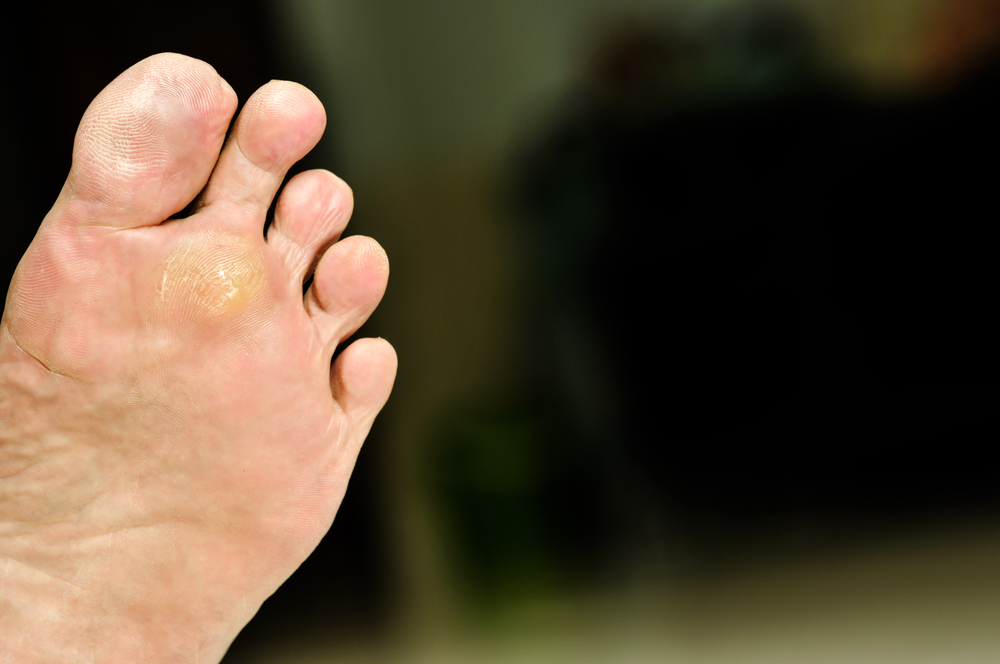Where on the Feet Does a Plantar Wart Develop?
Monday, 30 March 2020 00:00 A wart that develops on the sole of the foot is commonly referred to as a plantar wart. Standing and walking may cause the wart to grow inward, which can produce severe pain and discomfort. It may happen from being exposed to the type of fungus that is known as human papillomavirus, which is also known as HPV. Mild relief may be found when a protective pad is worn over the wart, as this may help to provide adequate cushioning as daily activities are completed. For stubborn plantar warts that do not heal, it is suggested that you consult with a podiatrist who can perform the necessary medical procedures, which may include the use of prescription medicines.
A wart that develops on the sole of the foot is commonly referred to as a plantar wart. Standing and walking may cause the wart to grow inward, which can produce severe pain and discomfort. It may happen from being exposed to the type of fungus that is known as human papillomavirus, which is also known as HPV. Mild relief may be found when a protective pad is worn over the wart, as this may help to provide adequate cushioning as daily activities are completed. For stubborn plantar warts that do not heal, it is suggested that you consult with a podiatrist who can perform the necessary medical procedures, which may include the use of prescription medicines.
Plantar warts can be very uncomfortable. If you need your feet checked, contact John Horlebein, DPM from Northern Cascades Foot & Ankle, LLC. Our doctor will assist you with all of your foot and ankle needs.
About Plantar Warts
Plantar warts are the result of HPV, or human papillomavirus, getting into open wounds on the feet. They are mostly found on the heels or balls of the feet.
While plantar warts are generally harmless, those experiencing excessive pain or those suffering from diabetes or a compromised immune system require immediate medical care. Plantar warts are easily diagnosed, usually through scraping off a bit of rough skin or by getting a biopsy.
Symptoms
- Lesions on the bottom of your feet, usually rough and grainy
- Hard or thick callused spots
- Wart seeds, which are small clotted blood vessels that look like little black spots
- Pain, discomfort, or tenderness of your feet when walking or standing
Treatment
- Freezing
- Electric tool removal
- Laser Treatment
- Topical Creams (prescription only)
- Over-the-counter medications
To help prevent developing plantar warts, avoid walking barefoot over abrasive surfaces that can cause cuts or wounds for HPV to get into. Avoiding direct contact with other warts, as well as not picking or rubbing existing warts, can help prevent the further spread of plantar warts. However, if you think you have developed plantar warts, speak to your podiatrist. He or she can diagnose the warts on your feet and recommend the appropriate treatment options.
If you have any questions please feel free to contact our office located in Chelan, WA . We offer the newest diagnostic and treatment technologies for all your foot and ankle needs.






